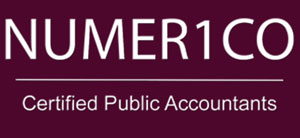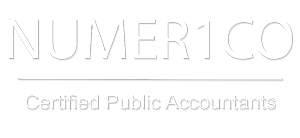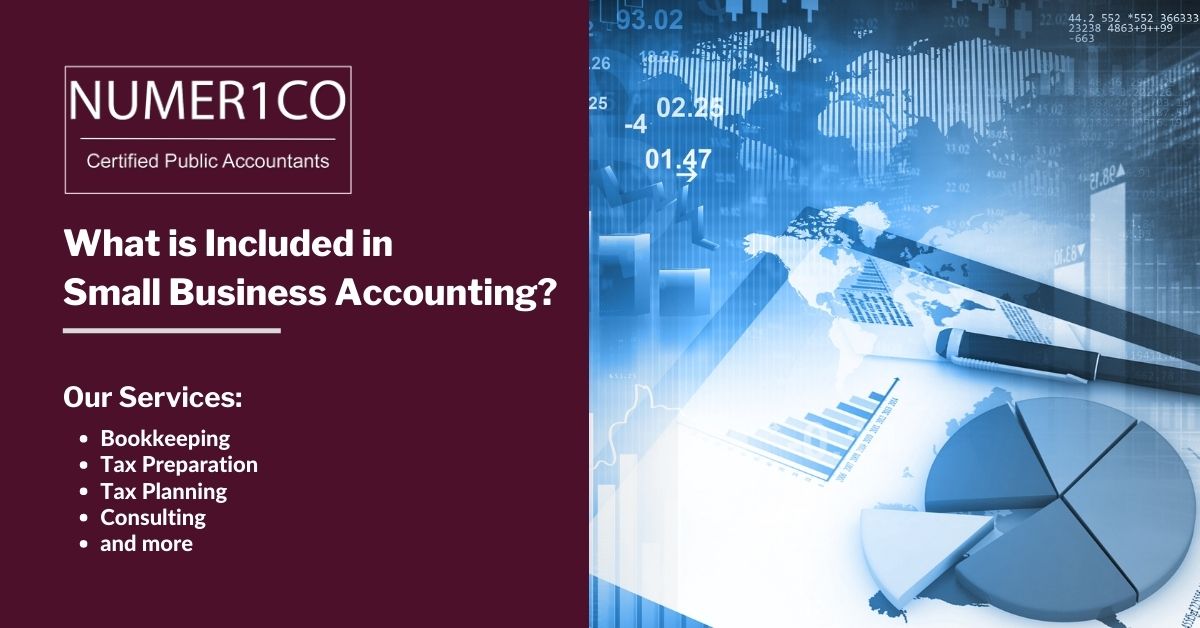Frequently Asked Questions About Business Accounting

As a business owner, you’re responsible for tracking your finances. That includes how much you pay for utilities and rent, your employees’ wages, and any products you use or sell. However, between sorting through invoices and sending out payments, some transactions may fall through the cracks, never making it to your business accounting books.
To help business owners though, we’ve put together some frequently asked questions about business accounting to help you along the way. Our team is here to help with everything from bookkeeping to multi-state tax compliance.
Whether you’re striving to understand the basics of accounting or you’re looking for a trusted CPA, contact us. At Numerico in Livonia, MI, our top-of-the-line accountants offer business accounting with our cost-effective services unique to each client.
How to Calculate Profits
Profits, including gross, operating, and net profit margins, show you what your business is worth.
Gross profit margins present your total income after subtracting the cost of goods sold (COGS). COGS include the cost of materials, labor, utilities, and equipment needed to create the goods. You can calculate this margin by subtracting COGS from net sales, then dividing that total by net sales and multiplying by 100.
Operating profit margins include COGS and other costs for running your business. Find your operating profit margin by dividing operating income by revenue and multiplying by 100. Operating income includes:
- Operating costs
- Overhead costs
- Administrative and sales expenses
- Amortization and depreciation
Net profit margins show your total profit after COGS, operating costs, and small business taxes and fees. You can find your net profit by dividing your net income by revenue and multiplying it by 100.
What Is a Good Profit Margin?
Once you’ve deciphered your profit margins, analyze the numbers to determine how successful your company is.
Part of business accounting is understanding that each industry has different average profit margins. For instance, restaurants have an average margin of 12.63%, while an accountant can expect a 19.8% margin. That means an accountant will pocket a higher percentage from each dollar made.
That’s because a restaurant will have more overhead fees for supplies, utilities, and maintenance. Therefore, compare net profit margins with others in your field or turn to the accounting specialists at Numerico for a better understanding of your financial progress.
What Are the Three Main Financial Statements?
Financial statements record your company’s financial activities, outlining how much your company makes and what you owe.
Balance sheets list assets, which your company uses to create products or services or sell to keep the company functioning. Assets should balance the total amount owed to company shareholders and liabilities to outside companies or workers, including the bank, suppliers, and government taxes.
Income statements place your gross income within a business accounting period at the top of the sheet and place deductions below it, including:
- Operating fees
- Interest income and expenses
- Income tax
The bottom number reflects your net gains or losses.
Cash flow statements show transactions with precise dollar amounts while showing your operating, investing, and financing activities.
How Much Should I Spend On Marketing?
Marketing, which falls under your operating costs, is a vital step in increasing traffic to your company. However, figuring out which marketing strategies fit your small business accounting goals will help you stay within budget.
Website optimization, a commonly used marketing strategy, uses techniques to enhance online appearance. That includes using keywords and links and creating an adaptive site for mobile devices. Digital media and digital marketing are excellent advertising tools to help accomplish business goals.
While there’s no steadfast rule, small businesses should expect to spend 7-8% of their gross revenue on marketing. You can also determine your marketing budget according to your:
- Type of company (B2B or B2C)
- Industry
- Revenue performance
Numerico | Small Business Accounting Firm | Livonia, MI
Whether you have a small retail shop or a large law firm, you have enough on your plate when running a business. While you’re there for your customers or clients, we want to be there for you! Also, if your business operates in multiple states, our team can help with multi-state compliance.
At Numerico, our CPA in Livonia, MI will help you with anything from seasonal tax preparation to long-term bookkeeping and financial planning. We support small businesses in Livonia, Plymouth, Canton, Farmington Hills, Ann Arbor, Westland, and the surrounding Michigan communities. When you’re ready for a responsive team to help with all your business accounting needs, contact us at 313-278-8030.





